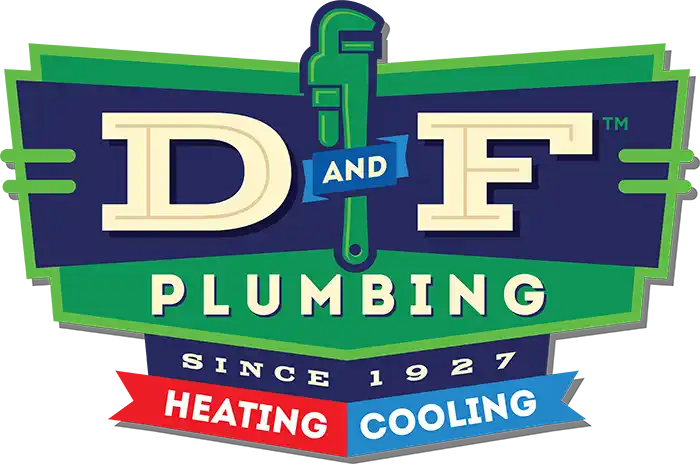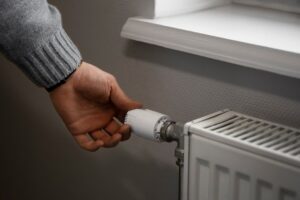Choosing the right water heater for your home is critical in ensuring a constant supply of hot water for household needs while optimizing energy efficiency and cost savings. Homeowners are often faced with the choice between gas and electric water heaters, each presenting its set of pros and cons. It’s essential to understand their differences in terms of heating capacity, energy efficiency, installation, maintenance, and operating costs in order to make an informed decision.
D&F Plumbing, Heating, and Cooling, a trusted choice for plumbing, heating, and cooling services in Portland, OR, and surrounding areas, is here to help you make an educated choice when it comes to selecting the best water heater system for your home. In this article, we’ll provide an in-depth comparison of gas and electric water heaters, highlighting their respective advantages and disadvantages. With expert guidance from D&F Plumbing’s experienced professionals, you’ll be better equipped to make the right decision and enjoy an energy-efficient, cost-effective solution for your home’s hot water needs.
Comparing Energy Efficiency
1. Gas Water Heaters:
Gas water heaters typically have higher energy efficiency than their electric counterparts, mainly due to their faster recovery rate and ability to heat more water in a shorter amount of time. According to the U.S. Department of Energy, gas water heaters can heat two times more water per hour compared to electric models. This higher efficiency can lead to significant savings on utility bills over time. It is essential, however, to check the Energy Factor (EF) rating of a specific model, as newer, high-efficiency gas water heaters can provide even further energy savings.
2. Electric Water Heaters:
Electric water heaters usually have a lower EF rating compared to gas models, mainly due to their slower recovery rate. However, some high-efficiency electric units are gaining traction in the industry, with higher EF ratings and heat pump technology, which can help maximize energy savings.
Installation and Maintenance
1. Gas Water Heaters:
Gas water heaters require more complex installation than electric units, needing proper ventilation and gas lines. This typically results in a higher upfront installation cost. However, once installed, gas water heaters generally have lower monthly operating costs due to the lower price of natural gas compared to electricity. In terms of maintenance, gas water heaters may require more frequent check-ups and service to ensure proper combustion and venting while preventing any potential gas leaks.
2. Electric Water Heaters:
Electric water heaters are easier and less expensive to install compared to gas models since they don’t need ventilation or gas lines. Nonetheless, electric units often have higher monthly operating costs due to the higher cost of electricity. Electric water heaters also have fewer parts, making them more manageable and less costly to maintain; this can offset some of the higher operating costs over time.
Evaluating Initial and Long-Term Costs
1. Gas Water Heaters:
In general, gas water heaters tend to have higher upfront costs due to the complexity of installation and the price of the appliance itself. Despite this, gas water heaters often boast lower operating costs than electric units, potentially saving homeowners money in the long run.
2. Electric Water Heaters:
Electric water heaters are typically more affordable upfront and easier to install than gas units. However, considering the higher operating costs associated with electricity, homeowners may end up paying more in the long run when opting for an electric water heater.
Determining Environmental Impact
1. Gas Water Heaters:
Gas water heaters utilize fossil fuels, contributing to greenhouse gas emissions and other pollutants. In addition, they may release low levels of carbon monoxide in the home if improperly vented, posing a potential health risk. It’s essential to ensure proper installation and regular maintenance to minimize any environmental and safety concerns.
2. Electric Water Heaters:
Electric water heaters have a lower environmental impact than gas units, as they do not directly contribute to greenhouse gas emissions. However, it’s essential to consider how electricity is generated in your area. If the majority is sourced from renewable energy, choosing an electric water heater can further reduce your carbon footprint.
Weighing Reliability and Lifespan
1. Gas Water Heaters:
Gas water heaters are known for their reliability, especially during power outages, as they don’t rely on electricity to function. Additionally, gas units typically have a longer lifespan than electric models, often delivering consistent performance for up to 12–15 years with regular maintenance.
2. Electric Water Heaters:
While electric water heaters may not provide hot water during power outages, they are still known for their reliable performance. Although the lifespan of an electric unit can be slightly shorter than a gas one, homeowners can expect a service life of approximately 10–15 years with proper upkeep.
Considering Available Space and Ventilation
1. Gas Water Heaters:
Gas water heaters typically require more space, as they need adequate ventilation to remove exhaust gases. In some homes, the requirement for venting can be a limiting factor when choosing a gas water heater.
2. Electric Water Heaters:
With no need for ventilation, electric water heaters can be installed in smaller or more confined spaces within a home, providing more flexibility in terms of placement.
Making the Right Choice for Your Home
The choice between a gas and electric water heater ultimately depends on several factors, including your home’s available space, energy efficiency goals, installation budget, and long-term operating costs. By carefully considering these factors, you can make the best decision for your unique situation and enjoy a reliable and efficient hot water supply for years to come.
D&F Plumbing, Heating, and Cooling in Portland, OR, and surrounding areas is a trusted provider of water heater installation and maintenance services, offering expert guidance when choosing the right water heater for your home. With our skilled team by your side, you can explore your options and make the best choice to suit your needs and budget.
Finding the Perfect Water Heater with D&F Plumbing
Both gas and electric water heaters have their unique advantages and disadvantages, making the decision a matter of assessing your household needs, energy efficiency goals, and budget. By understanding the differences between these two systems, you can make an informed decision, ensuring a steady supply of hot water while remaining cost-effective and environmentally conscious.
Let D&F Plumbing, Heating, and Cooling in Portland, OR, and surrounding areas help you make the right choice for your home. Our team of experienced professionals is here to guide you through the selection process, ensuring you choose the best water heater system tailored to your individual needs. Contact D&F Plumbing today to schedule a consultation and take the first step towards a reliable, efficient, and cost-effective water heating solution for your home.




